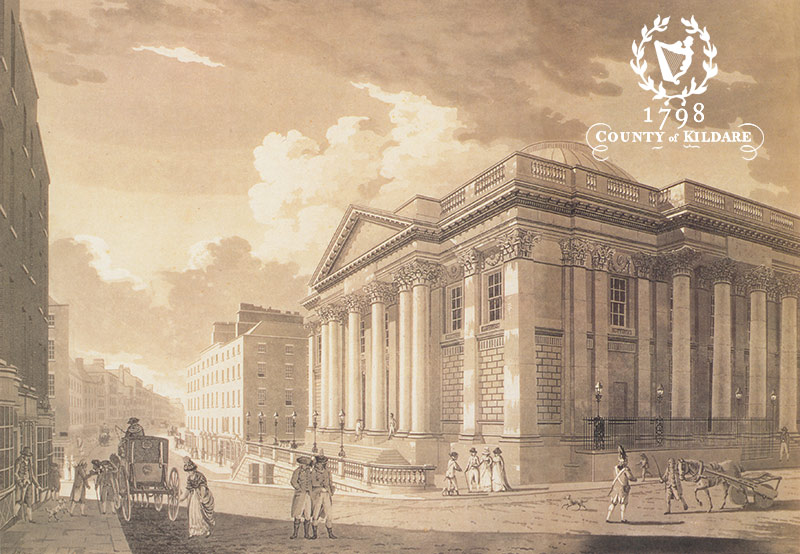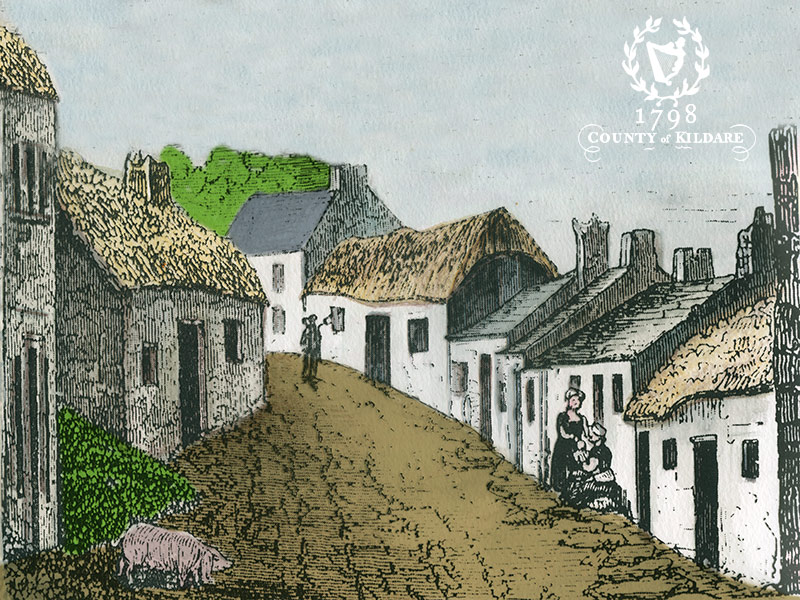Background to Rebellion
Introduction
The factors which combined to bring about the rebellion included religious discrimination, the influence of French and American ideas, a fast growing population at home, agrarian unrest and government repression. Church of Ireland landowners of English origin held over 90% of the land. The vast majority of people were excluded from political life; including Catholics, who made up the bulk of the peasantry, the middle classes of all denominations and Presbyterians.
In some ways the eighteenth century was a period of economic growth and expansion. There were improvements and advancements in trade, commerce, transport and architecture. The expansion of Dublin, Belfast and other cities, gave the impression that the country was improving and in many ways it was. In the closing decades of the century an ambitious surge in private and public building made Dublin one of the most impressive capitals in Europe.

Splendid Georgian residences for the gentry were under construction. But alongside this splendour there was rampant poverty and Dublin was swelled with wandering beggars. In rural Ireland political and local tensions began to emerge from beneath the surface. Much of the country was in a state of “smothered war”.
The philosophies of authors such as Tom Paine, John Locke, Rousseau, and Voltaire, were being taken on board by reformists and radicals throughout Europe. The French revolution and the American War of Independence gave inspiration to those who sought political reform. At home the Society of United Irishmen used the ideas of Liberty, Fraternity and the Rights of Man to highlight the political inequalities in Ireland.
When the Rebellion broke out thirty to fifty thousand men turned out in a series of insurrections in eighteen counties of which six were severely affected. It was claimed by “Loyalists” that damage to property was in excess of one million pounds, the majority of which was in Kildare, Wexford and Wicklow. It has been estimated that as many as twenty thousand may have been killed during the Rebellion.

Following the Rebellion the political initiative remained firmly in the hands of the establishment. The 19th century began not with the Republic sought by the radicals but with a legislative union.
